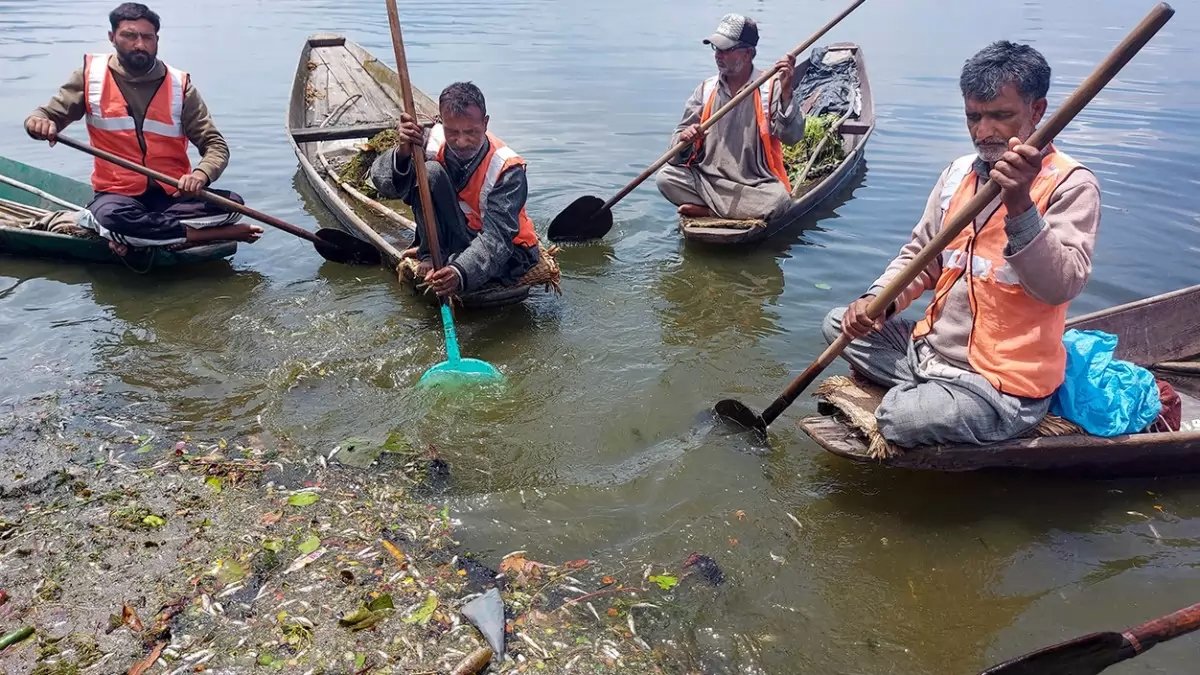The death of thousands of fish in Dal Lake, caused by a sudden temperature fluctuation and subsequent oxygen depletion, has raised concerns about the ecological balance. Officials have clarified that this occurrence, known as “summer kill,” is a natural phenomenon, and similar incidents have happened before. Officials claim that the fish deaths are not the result of poisoning or chemical toxicity in the water, and the affected fish species identified were Gambusia, found in large quantities in the lake.
However, local residents of Dal Lake immediately disputed the official explanation and pointed to excessive de-weeding and sewage dumping as factors impacting the lake’s ecosystem. They argued that if temperature fluctuations were solely responsible, fish deaths would also occur in the lake’s interior. They expressed concern about the increased water levels, which they believe have been intentionally maintained higher than normal, and the potential contamination of water from the sewage discharge. The other factor pointed out by residents is the pollution from houseboats and waste dumping into the lake, which requires proper monitoring of sewage disposal. They urged authorities to investigate the issue and take immediate action to prevent waterborne diseases and preserve the lake’s environment.
The pollution and conservation of Dal Lake have emerged as significant concerns in recent years, despite substantial annual investments. Encroachment and water pollution continue unabated. The existing sewage treatment plants face challenges such as inadequate power supply and excessive flooding during rainfall. Moreover, water channels like Nallah Mar have been converted into roads, leading to the disappearance of several such channels. As a consequence, continuous dumping of waste into the lake occurs, resulting in excessive weed growth. Previous Governments have formulated schemes, including the extraction of oil from weeds, but the implementation on the ground has been lacking.
This incident has raised many eyebrows. Whatever the reasons, the situation calls for further investigation and appropriate measures to safeguard the lake’s ecosystem and address potential health risks to the local community.
Trending Now
E-Paper


